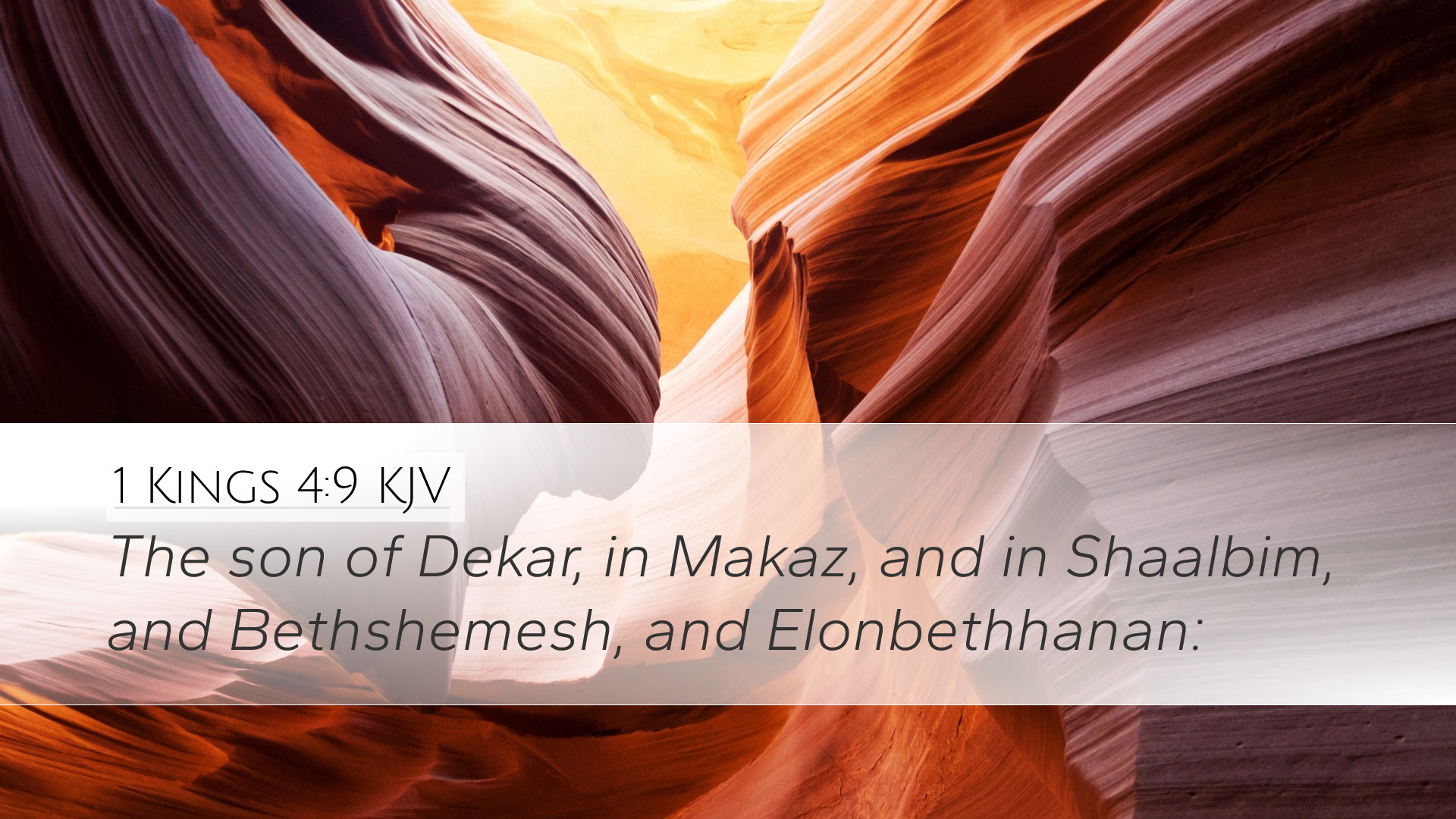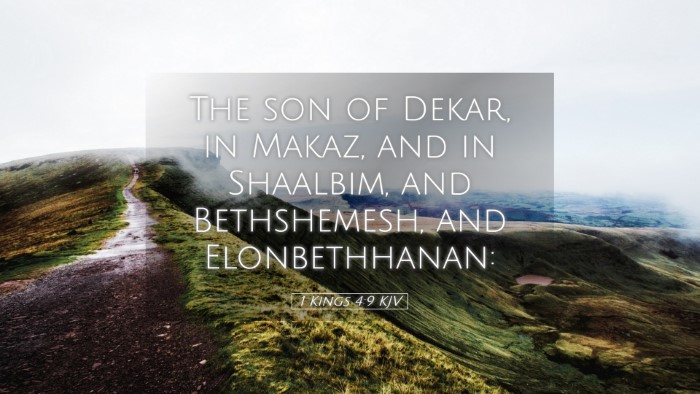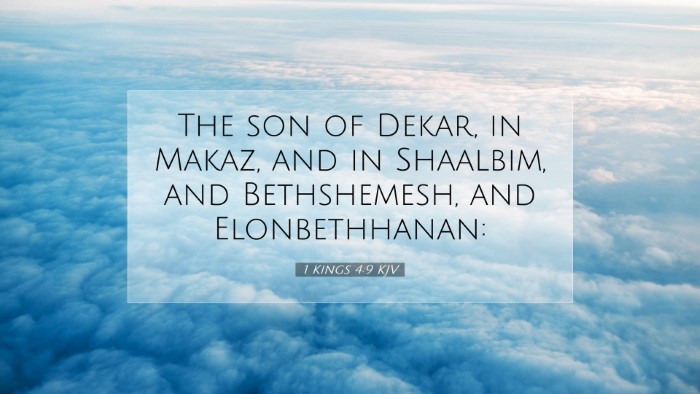Commentary on 1 Kings 4:9
Verse Text: "The son of Geber, in Ramothgilead; to him pertained the towns of Jair the son of Manasseh, which are in Gilead; and the region of Argob which is in Bashan, threescore great cities with walls and brasen bars."
Introduction
This verse from 1 Kings 4:9 highlights the administration of King Solomon and the distribution of responsibilities among his appointed governors. Solomon's reign is marked by prosperity and efficient governance, and this verse provides insight into the organization of his kingdom, specifically the allocation of land and authority to his officials.
Exegesis and Meaning
-
Geographical Significance
The mention of Ramothgilead presents its importance strategically. Situated in Gilead, this city is a key military and administrative center. Its placement reflects Solomon's intention to solidify control over troubled regions, ensuring peace and order through capable leadership.
-
Leadership Structure
Solomon’s choice of Geber as a governor symbolizes an organized and structured governmental system. The division of the kingdom into various districts, eachheaded by capable officials, indicates a governance model that emphasizes accountability and competence in leadership.
-
Historical Context
The towns that belonged to Jair the son of Manasseh show the fulfillment of historical promises made by God regarding the land. Jesus, through Solomon's reign, establishes a lineage of leadership that strategically aligns with God’s covenant promises.
Insights from Commentators
-
Matthew Henry
Henry emphasizes Solomon’s wisdom in appointing governors as a display of his administrative acumen. He notes how the various towns assigned to Geber reflect both Solomon's influence and the responsibilities of leadership in maintaining the peace and welfare of the Israelites.
-
Albert Barnes
Barnes elaborates on the significance of Ramothgilead as a fortified city, highlighting its military importance. He suggests that Solomon's fortification of such towns indicates both readiness for potential conflict and a commitment to the protection of the Israelites, thus ensuring their security.
-
Adam Clarke
Clarke points out the importance of the towns given to Jair the son of Manasseh, illustrating this as a reflection of God's promise regarding the land of Gilead. His commentary reveals how these assignments were not only administrative but also a reminder of God's enduring covenant with Israel.
Theological Implications
The governance system established by Solomon serves as a model for leadership within biblical texts and Church history. The allocation of responsibilities reminds us that those in leadership are divinely appointed and must be mindful of their duties to serve the people entrusted to their care. It urges modern leaders to reflect on their roles and responsibilities, emphasizing accountability and care for those they serve.
Conclusion
1 Kings 4:9 encapsulates a moment of wisdom in leadership, showcasing Solomon's strategic planning for an expansive kingdom. Incorporating insights from esteemed biblical scholars provides deeper understanding into the complexity and richness of this text, encouraging both spiritual growth and theological reflection.
Reflection Questions
- What lessons can contemporary leaders learn from Solomon's governance style?
- How does the structure of leadership impact the spiritual life of a community?
- In what ways can we see God’s faithfulness in the details of governance as depicted in scripture?


